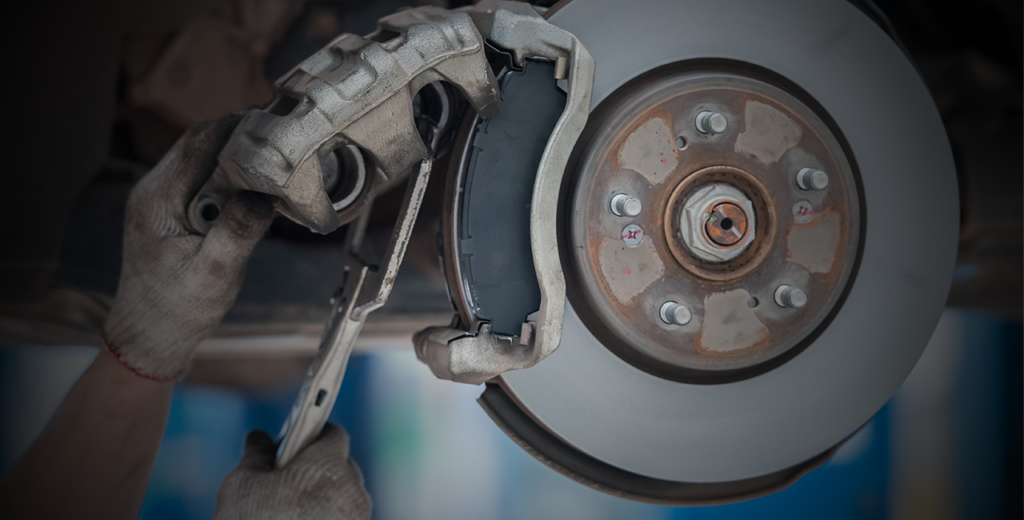Ever wonder how long your brake pads will keep doing their job? When you step on the brake pedal, those small but mighty pads work hard to slow your car down and keep you safe. But, like all car parts, they don’t last forever.
Understanding how long brake pads last isn’t just about avoiding that annoying squealing sound or a surprise repair bill. It’s about staying safe on the road and ensuring your car runs smoothly—something a auto repair Houston expert can help you with through regular inspections.
How long do they last? What can you do to make them last longer? And how do you know when it’s time to replace them? Let’s break it all down in this easy-to-understand guide!
If you’re searching for ‘auto repair near me,’ we’re here to help — book your service today.
Why It’s Important to Know When to Replace Your Brake Pads?
- Ensures Optimal Braking Performance
Timely replacement ensures your vehicle can stop effectively, especially in emergencies.
- Prevents Damage to Other Components
Worn brake pads can damage costly parts like rotors and calipers.
- Enhances Road Safety
Staying on top with car brake repair services reduces the risk of accidents caused by faulty brakes.
- Saves Money Over Time
Regular brake pad maintenance avoids expensive repairs to the braking system.
- Complies with Legal and Inspection Requirements
Worn brake pads may cause your vehicle to fail safety inspections.
Average Lifespan of Brake Pads
The lifespan of brake pads varies widely depending on factors like the type of brake pads, driving habits, and vehicle use.
On average, most brake pads last between 25,000 and 70,000 miles, but this range can fluctuate significantly based on how and where you drive.
General Mileage Estimates
For everyday driving, brake pads typically need replacement within the 25,000–70,000 mile range.
High-performance brake pads, such as ceramic or semi-metallic pads, may last longer compared to organic pads, which tend to wear out more quickly.
Variances Based on Usage
- City Driving:
Frequent stop-and-go traffic causes brake pads to wear out faster, often closer to 25,000 miles.
- Highway Driving:
Less frequent braking may extend pad life, sometimes up to 70,000 miles.
- Heavy Loads or Towing:
Vehicles that tow or carry heavy loads put extra pressure on brake pads, reducing their lifespan.
- Driving Style:
Aggressive braking or sudden stops can accelerate wear and tear.
| Average Brake Pad Life Depending on Type of Vehicle | ||
| Vehicle Type | Typical Brake Pad Life | Key Factors Impacting Lifespan |
| Compact Cars | 20,000 – 50,000 miles | City driving, frequent braking, stop-and-go traffic |
| Sedans | 30,000 – 60,000 miles | Urban commuting, pad quality (organic vs. ceramic) |
| Luxury Cars | 35,000 – 65,000 miles | Heavier build, high-performance braking systems |
| SUVs | 25,000 – 55,000 miles | Heavier load, off-road or all-terrain usage |
| Trucks (Light Duty) | 25,000 – 50,000 miles | Towing, hauling, uneven terrain |
| Sports Cars | 15,000 – 35,000 miles | Aggressive braking, high-speed driving |
| Electric Vehicles (EVs) | 50,000 – 90,000 miles | Regenerative braking and smooth driving style reduce wear. |
| Heavy Duty Trucks | 15,000 – 40,000 miles | Heavy payloads, rugged driving conditions |
How Brake Pads Work:
Brake pads are a critical part of the braking system, designed to create friction against the brake rotors (or discs) when you press the brake pedal.
This friction generates the necessary force to slow down or stop your vehicle by converting kinetic energy (movement) into thermal energy (heat). Over time, this process naturally wears down the brake pad material.
Friction’s Functionality: The level of friction between the pads and the rotors determines how effectively the vehicle slows down. This is why choosing the right brake pad material is essential for optimal performance.
The Role of Friction and Brake Pad Materials
Brake pads create friction against the rotors to slow your car, converting motion into heat. This friction causes wear over time, affecting the material composition.
- Organic Pads: Soft, quiet, and affordable but wear out quickly; ideal for city driving.
- Semi-Metallic Pads: Durable and heat-resistant but noisier; best for high-performance or heavy-duty use.
- Ceramic Pads: Quiet, long-lasting, and dust-free but more expensive; great for consistent, smooth braking.
When You Should Consult a Professional Mechanic?
Maintaining your brakes is crucial for safety, and consulting a professional mechanic is the best way to ensure your braking system is in top condition.
- Routine Brake Inspections
Regular brake inspections by professionals, like those offered at Eric’s Car Repair, can help identify wear and tear on components such as pads, rotors, and calipers before they lead to serious issues.
Our comprehensive inspections are designed to catch problems early, ensuring your brakes function safely and effectively.
- Importance of Addressing Issues Promptly
Ignoring signs of brake issues, such as squealing noises, reduced braking power, or dashboard warning lights, can lead to more severe and costly damage. Promptly consulting a mechanic can prevent accidents and expensive repairs.
- Benefits of Professional Diagnosis
Our team uses advanced diagnostic tools to identify the root causes of brake problems.
Whether it’s worn-out pads, damaged rotors, or low brake fluid, our trained technicians provide accurate solutions, ensuring every part of your braking system is restored to optimal performance.
Financial Benefits of Timely Brake Pad Replacements
Timely brake pad replacements are not only crucial for safety but also for avoiding costly repairs.
Preventive maintenance, like replacing brake pads, is significantly less expensive compared to repairing the damage caused by delaying service.
For example:
- Brake Pad Replacement: Typically costs between $100–$300, depending on the type of pads and labor charges.
- Rotor Resurfacing or Replacement: If worn pads damage the rotors, resurfacing costs around $150–$250, while full rotor replacement can range from $400–$700 per axle.
Drive Safe and Replace Your Brakes
Regular brake pad maintenance is essential for optimal braking performance, preventing costly repairs, and ensuring road safety.
By addressing issues promptly and consulting professional mechanics, you can extend the lifespan of your brakes and enjoy a worry-free driving experience. Prioritize your vehicle’s maintenance and visit Eric’s Car Care to stay safe and confident on the road! So, call us at 713-667-9293 and book your appointment.

